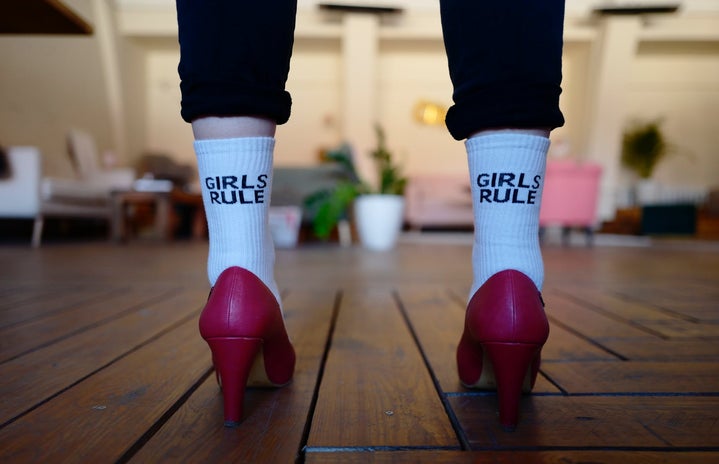I have a problem with feminism. If you know anything about me or have read any of my past articles, this probably comes as a shock to you. I’m what most people would consider a radical feminist (definition: I believe I should have equal respect and opportunity and so should others). However, I do think that feminism in its greatness has caused a few issues in our modern way of expressing it. Let me explain.
Feminism today has become more of a buzzword than a movement. According to Oxford Dictionary, a buzzword is “a word or phrase, often an item of jargon, that is fashionable at a particular time or in a particular context.” However, a movement is defined as “a group of people working together to advance their shared political, social, or artistic ideas.” Unfortunately, although feminism is definitely taking the form of a movement and making great strides (see this article about the ERA for more on that), it’s often misused and misrepresented by people who want to fit in with mainstream ideas and the fashionability of the word in our modern-day world.
In this way, so many people self-define as a feminist without really thinking about what that word means and how they should approach their enactment of it within their day to day lives. I’m a firm believer that you cannot be a feminist without reflecting upon yourself and living intentionally in a way that promotes equality. Of course, everyone messes up and we will all get it wrong from time to time, but we must work for the betterment of our society as a whole.
Often times, I see women taking on feminism as an explanation for stepping on the backs of others to climb the ladder. It’s true that women are suffering to be equally recognized and heard in top positions as we make up only 5 percent of Fortune 500 CEOs. I support all of my sisters going after their dreams and goals and I hope that we can tackle these issues of inequality and rise the number to 50%, especially when we statistically are obtaining more than 50% of Bachelor’s and Master’s Degrees. However, if we truly believe in feminism and if our work ethic is a part of the greater goal of empowering women and progressing our roles, we must not harm others for our own benefit.
Although it may seem that I am pointing the finger largely at women, I would like to step back and realize that these issues begin in early childhood before we are even conscious of what we’re doing. A capitalist culture doesn’t always promote working together as a team and unfortunately, sometimes we become programmed into pushing others down to reach what we consider our own “success.” Sometimes as women we’re also programmed more intensely into this competitive state of mind when we feel that there are only a few seats at the table left for us. We’ve seen this in movies and popular culture since childhood and it’s hard to undo such brainwashing. We’ve been conditioned to be the “most beautiful” and the girl who gets the guy. We’ve forced an idea into our heads that we have to look this way, act this way, walk this way, and talk this way. We’ve been told who we should and should not like and who is and is not popular or cool. This imprint often controls the way we act before we have the time to think about it and re-evaluate what we’re doing. But if we want to be feminists, we must re-evaluate what we’re doing.
I’ve watched so many women get caught up in “hustle culture” and claim feminism while turning their backs on their friends and undermining others in order to receive the limelight. These actions are justified with more buzzwords about being “on the grind” and “self love” while forgetting that we should also love our sisters. It’s hard to remove the idea that we are in competition and we can’t be a team when we grow up on movies like Mean Girls that highlight themes of female competition and follow stereotypes of beauty and popularity. However, we must remember that we are not in competition and considering ourselves “better than” doesn’t necessarily make us a great feminist. You are a great feminist when you love and respect others, promote equality, and allow others to climb the ladder while you spot them if they deserve it more. Love your sisters, not just yourself.


